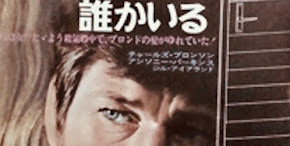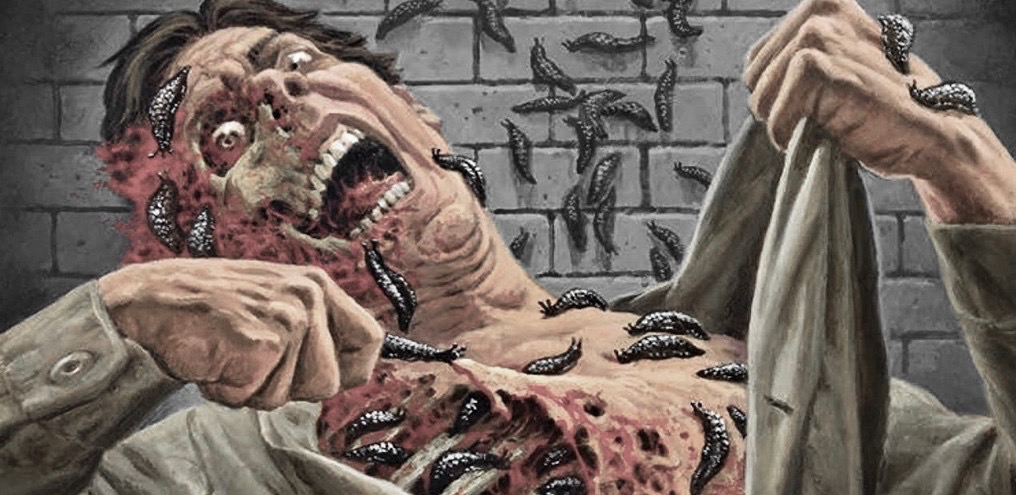 |
| Beau Bridges faces the boys of Child's Play YEAR: 1972 |
In CHILD'S PLAY, from way back in 1972 and not involving a red-haired serial killer doll named Chucky, the development of the characters drives the suspense, and for today's standards, this could seem like a slow-moving, over-brooding, thrilless arthouse thriller, or a stage play adapted to the big screen. But what's really intriguing are the similarities with THE EXORCIST, which was being filmed when this hit theaters, but the book had been on the stands for several years...
So for anyone who hasn't seen or doesn't want to see William Friedkin's brilliant and timeless GODFATHER of horror flicks, that opened the door for a number of slowburn Catholic-centered horror-thrillers, there are three particular characters: an old priest, a younger priest, and a possessed young girl. Replace the girl with an entire Catholic School of mostly bullying boys who, as we witness their odd behavior, are in some sort of... spell, or something... adding Mystery to the myriad of genres...
 |
| Child's Play Rating: ***1/2 |
We learn of everything through token white rabbit Beau Bridges, a former student who had returned as a teacher and greatly admired Robert Preston's vivacious, progressive English teaching priest, Joseph Dobbs, while immensely fearing a bitter old coot – Jerome Malley played by James Mason – who seems to be our primary antagonist, but as "the case" unfolds he could very well be a temperamental red herring...
Leading to the best scenes involving conversations between Beau's pivotal and, for the most part, eventually ambiguous Paul Reis with the polar opposite instructors while the kids are but a sporadic break that really need no escaping from...
 |
| Child's Play DVD Artwork |
For CHILD'S PLAY is more of a "Courtroom Drama" without a court and gavel. Bridges proceeds over the "testimonies" of both men although one is sold as being far more likable from the onset; yet this opinion remains more decided by the students than we, the hyper-alert audience, anticipating a twist to occur, especially with a character (Preston) so flawless. Meanwhile, we're (through Bridges) the Jury being swayed, maneuvered from one side to the other: Preston is charming and understandable on a universal level as Mason has a tortuous life that can be pitied, even beyond the death of his mother. And the characters develop from there.
 |
| If you can't beat it, show it just to kill it |
Director Sidney Lumet channels his signature New York gritty realism into the Gothic school where statues and cold walls keep that heated far-off reality as distant from the lens as it is the students, inhibiting a power, or perhaps merely channeling a hypnotic strength that needs no real explanations like, say, a ROSEMARY'S BABY. Leading to a conclusion with so much buildup it begs for palpable closure. And yet, CHILD'S PLAY clings to words beyond action and an enigmatic dark aura over nail-biting suspense. In some strange way, there doesn't need to be any end at all. You can hear these two men speaking for days.
Sure there could have been scarier moments here and there, or even a dugout of fellow priest/teachers introduced to individually buy the farm when they wander off alone through the spooky campus. (Alright, that's very 1980's, but there are pockets of downtime when a few deaths would have livened the picture.) Hell, even THE EXORCIST had palpable "gotcha!" moments: cinematic caffeine never hurts. But CHILD'S PLAY centers more on the dark hypnosis than what derives from it. Adding to one of several films using THREE main male leads to override a more conventional formula, intriguing enough to keep the viewer tuned in even after the purpose becomes all too clear.
 |
| Beau Bridges and James Mason in CHILD'S PLAY Year: 1972 |
 |
| Beau Bridges, James Mason and Robert Preston in Child's Play |
 |
| Beau Bridges and Robert Preston in Child's Play |
 |
| The boys of the music man as Robert Preston faces Beau Bridges in Child's Play |



































































No comments:
Post a Comment
Note: Only a member of this blog may post a comment.